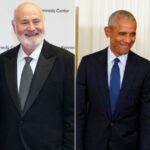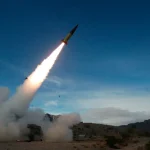
McDonald’s CEO called slumping sales in the Middle East “disheartening” as franchises across the region are struggling after locations in Israel offered free meals to Israeli soldiers following the October terror attacks on the country.
The company chief executive did not specifically comment on the Oct. 7 Hamas terror attack, nor did he specifically mention why sales are slumping in the Middle East.
But in a letter he posted on his LinkedIn page last week, McDonald’s CEO Chris Kempczinski spoke about the state of the company as it navigates yet another year.
“Our hearts remain with the communities and families impacted by the war in the Middle East,” Kempczinski wrote in a post that he titled “A New Year to Reimagine McDonald’s Future.”
The CEO wrote that McDonald’s is opposed to “violence of any kind” and stands against “hate speech.”
He then noted that McDonald’s locations in the Middle East are struggling, although he did not divulge any numbers.
In his message to company investors, Kempczinski wrote:
“I also recognize that several markets in the Middle East and some outside the region are experiencing a meaningful business impact due to the war and associated misinformation that is affecting brands like McDonald’s.
“This is disheartening and ill-founded. In every country where we operate, including in Muslim countries, McDonald’s is proudly represented by local owner operators who work tirelessly to serve and support their communities while employing thousands of their fellow citizens.”
Do you eat at McDonald’s?
Yes: 0% (0 Votes)
No: 100% (2 Votes)
Kempczinski added that in every city in which McDonald’s operates, it fosters a “community connection” that he said is “the genius of the McDonald’s System.”
The CEO did not mention boycotts of the chain in countries such as Kuwait and Pakistan, which CNN Business reported began in October when franchisees in Israel fed hungry soldiers who found themselves fighting off Hamas terrorists and kidnappers.
News of the actions of the Israeli franchisees apparently spread to Middle Eastern markets and customers were turned off.
In spite of the fact that McDonald’s locations are under different ownership — so decisions made by franchisees in Israel have nothing to do with decisions of franchisees in other parts of the Middle East, Europe or the United States, CNN Business reported that McDonald’s franchises in the Middle East outside Israel have “issued statements saying they did not share ownership with the Israeli franchise, and some of those franchises noted they have made financial donations to aid those in Gaza.”
On Oct. 13, Business Insider, citing a since-deleted Instagram post, reported that McDonald’s Israel was donating thousands of meals daily to Israel Defence Forces members and other public servants in the days immediately after the Oct. 7 attacks.
McDonald’s Israel had reportedly posted on the platform:
“McDonald’s donated and continues to donate tens of thousands of meals to IDF units, the police, hospitals, residents around the Strip and all rescue forces.
“We continue donating thousands of meals daily to our forces across the country. In addition to a 50% discount to soldiers and security forces who come to our branches.”
The news caused a backlash against restaurants elsewhere, according to the BBC.
“The moves sparked grassroots calls for boycotts of the brand by those angered by Israel’s military response in Gaza, prompting owners in Muslim-majority countries such as Kuwait, Malaysia and Pakistan to put out statements distancing themselves,” the BBC reported.
The pro-Palestinian “Boycott, Divestment Sanctions” movement, which aims to make Israel a pariah state through economic isolation, has added McDonald’s to its list of corporate boycott targets.








